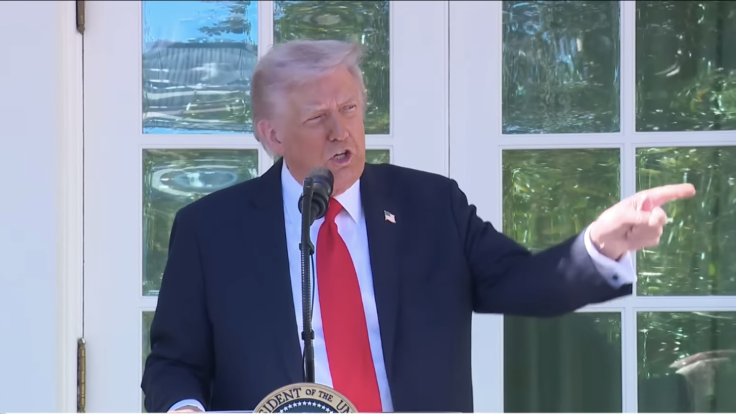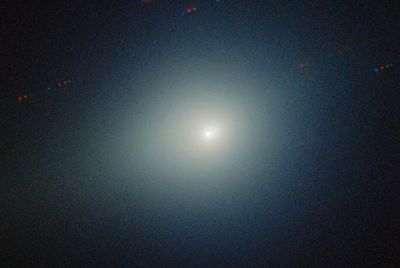Trump Threatens to Halt Aid and Take Military Action in Nigeria, Accuses Government of Failing to Protect Christians

KEY POINTS
- President Trump accused the Nigerian government of failing to protect Christians from Islamist violence.
- On Truth Social, Trump said he had instructed the 'Department of War' to prepare for possible action.
Donald Trump has ignited an international firestorm after threatening to send American troops into Nigeria and cut off aid, accusing the West African nation of failing to protect Christians from Islamist militants.
His explosive remarks have alarmed diplomats, inflamed debate over religious violence, and reignited fears of US military intervention in Africa.
In a social media post late Sunday, the US president claimed he had ordered the Department of War to prepare for 'possible action' in Nigeria, warning that the United States could intervene 'guns-a-blazing' unless Abuja acted decisively against extremist groups.
Trump said he would 'cut all aid' to what he described as 'the now disgraced country', adding: 'If we attack, it will be fast, vicious, and sweet, just like the terrorist thugs attack our CHERISHED Christians!'
US Defence Secretary Pete Hegseth appeared to endorse the statement, responding: 'Yes sir. The Department of War is preparing for action. Either the Nigerian Government protects Christians, or we will kill the Islamic terrorists who are committing these horrible atrocities.'
Nigeria Responds Cautiously
The remarks triggered unease in Nigeria, where social media users urged the government to strengthen security in the north but voiced alarm over what unilateral American involvement could mean.
Daniel Bwala, an advisor to Nigerian President Bola Tinubu, told the BBC that Abuja was not taking Trump's words literally. 'We know the heart and intent of Trump is to help us fight insecurity,' he said, calling the language 'a unique way of communicating.'
Still, Bwala stressed that Nigeria was a 'sovereign' nation and any foreign military action must be coordinated with its government.
He also rejected the idea that jihadist violence in Nigeria was aimed solely at Christians. 'The jihadists are not targeting members of a particular religion,' he said. 'They have killed people from all faiths, or none.'
Violence in Nigeria: A Complex Reality
Nigeria, a nation almost evenly split between Christians and Muslims, has battled extremist groups like Boko Haram and Islamic State West Africa Province (ISWAP) for more than a decade. Tens of thousands have been killed and millions displaced, mostly in the north-east.
Conflict trackers, including ACLED, report no evidence that Christians are targeted more than Muslims.
Analysts note that Boko Haram and ISWAP have historically slaughtered far more Muslims than Christians, attacking security forces and civilians indiscriminately.
In the country's central Middle Belt, deadly clashes between nomadic herders and largely Christian farmers have escalated in recent years.
Experts say these conflicts stem from land disputes, climate stress, and local grievances rather than a religious crusade. Human rights groups warn that framing the violence as sectarian could inflame already volatile tensions.
Trump's Claims and Domestic Context
Trump has repeatedly framed Nigeria as the site of a 'Christian genocide', though without offering concrete proof.
He said he designated the country a 'Country of Particular Concern' due to what he called an 'existential threat' to Christians, a classification used by Washington for serious violations of religious freedom.
President Tinubu pushed back, saying such descriptions misrepresent Nigeria's reality. 'The characterisation of Nigeria as religiously intolerant does not reflect our national reality,' he said. 'Security challenges affect people across faiths and regions.' Tinubu vowed his government would protect 'communities of all faiths.'
Trump has often boasted of his non-interventionist record, claiming pride in not launching new wars while in office. Yet his latest remarks come amid growing calls from right-wing voices in the US for tougher action against alleged persecution of Christians abroad.
Sensitive Diplomatic Terrain
While some Nigerians welcomed the idea of stronger US support against extremists, many expressed alarm over the prospect of unilateral intervention.
'Foreign military involvement in Nigeria has always been sensitive,' said one Lagos-based security analyst. 'Direct US action would be unprecedented and politically explosive, even if framed as humanitarian.'
For now, officials in Abuja seem intent on defusing tensions while asserting sovereignty. Bwala said he hoped Trump and Tinubu would meet soon. 'We want cooperation, not confrontation,' he said.
Whether Trump's words reflect genuine policy intent or political posturing remains unclear, but his threat has thrust Nigeria's security crisis back onto the global stage and raised urgent questions about religion, geopolitics, and the limits of American power in Africa.
© Copyright IBTimes 2025. All rights reserved.





















